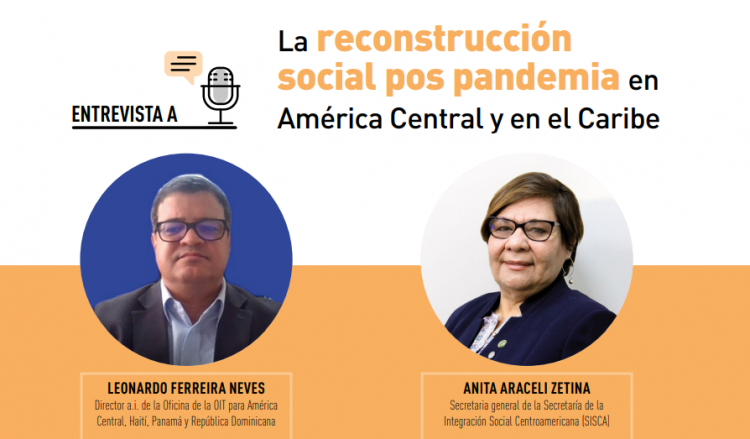Hélène Furnon-Petrescu, Head of the Women's Rights and Equality Department, Directorate General for Social Cohesion (DGCS), Ministry for Equality between Women and Men, Diversity and Equal Opportunities, France and Alexis Rinckenbach, Head of the Office of European and International Affairs in the DGCS as above.

Through the Ministry for Equality between Women and Men, Diversity and Equal Opportunities, during this lockdown period which has led to increased gender-based violence, the French government has had and continues to have a clear objective and an unwavering determination: to protect women victims, without exception, by all means.
At the beginning of the lockdown, it became obvious that the challenges were on three levels: identify, protect, and prevent. Making the scale of violence more visible, objectifying and analysing it, is a necessary prerequisite for guiding public action and providing effective and adequate responses to better fight against this scourge. In 2019, before the COVID-19 pandemic, we observed a rebound in intimate partner violence as demonstrated by the official national indicators published by INSEE (National Statistics Institute), the ONDRP (National Observatory of Crime and Criminal Justice), the SSMSI (Internal Security Statistical Department), the Ministry of the Interior, the Ministry of Justice and the SDSE (Justice Ministerial Statistical Department): 121 women were murdered by their partners or ex-partners, or one woman every three days; 213,000 adult women claim to have been victims of physical and/or sexual violence inflicted by their spouse or ex-spouse during one year; fewer than one in five say they filed a complaint.
The Ministry for Equality between Women and Men, Diversity and Equal Opportunities has developed a series of measures, such as adapting the reporting of gender-based violence according to the circumstances. The arretonslesviolences.gouv.fr platform and the Police emergency number (17) are the preferred channels in case of violence and serious and immediate danger, with the need to intervene on the spot. Throughout the entire duration of the health crisis, the platform for reporting sexual and sexist violence has been fully operational and active 24 hours a day. Since 1 April 2020, a new reporting channel has been available for victims of domestic violence making it possible to send an alert text message to 114 to activate the intervention of the police or gendarmerie.
The 3919 national helpline serves women victims of all forms of violence, as well as their families, friends and relevant professionals and it is run by the National Federation for Feminine Solidarity (FNSF). In addition to having a hotline, women can find information and an appropriate referral to local care and support services: free and anonymous, open seven days a week.
On 10 June, the FNSF reported that the volume of calls to 3919 had doubled: between April and May, 52,000 calls were received, double the number during the same period in 2019. It can be especially difficult for women to raise the alarm at times of health crisis, especially if their partner is constantly at home. To deal with this, the methods for making themselves known have been adapted, with a complaint system in pharmacies for women and their child victims, in metropolitan France and French overseas territories with the support of the National Order of Pharmacists.
The alert can now be given in pharmacies
In the context of a health crisis, the pharmacist may be required to come into contact with victims or witnesses of domestic violence. This can allow the pharmacist to issue a report. There are several tools available to help them:
- a “reflection sheet” to guide them when they come across a person who spontaneously indicates that they are a victim or witness of violence;
- a brochure from the Ministry of the Interior for public display, which gives the procedure for reporting violence;
- a list of useful contacts.
Furthermore, if her spouse is with her, the victim will be able to use a code, for example “mask 19” when visiting a pharmacy, and she will be given instructions so that the police can intervene.
Some groups are taking other initiatives, such as the large retail chains, which carry information on the alert systems in all their outlets. This can be achived by publicising them in their stores or on companies’ websites, or by printing information on each receipt. The application of the new provisions has been the subject of information campaigns on social media and broadcast by various influencers.
The example of the Citad’elles programme in Nantes
The Citad’elles programme, launched by the city of Nantes (Loire-Atlantique) in November 2019, is dedicated to listening to and supporting women who have suffered domestic violence. In addition to the psychologists and nurses present on site, police officers or gendarmes collect the complaints and legal experts inform the victims about the assistance mechanisms available to them.
The Citad’elles helpline, which has been kept, has proven particularly popular with women who wanted to know if the place was going to be closed. And if the proximity of the violent spouse prevents the woman from making calls, the programme’s website clearly presents the measures to be taken and explains how to erase the browsing traces from her computer or mobile phone.
To protect the victims as quickly as possible, cases of violence are dealt with by the courts as a matter of priority. Judges in the Family Court continue to issue protection orders. These are high-protection measures aimed at ensuring rapid and effective protection for victims of violence, organising the material situation of women and relations with children after separation.
Many of these measures have continued after lockdown and will include long-term public policies whose objective is the protection of victims but also the prevention of violence against women. In addition, the Ministry’s priority is promoting the economic role of women, reconciling joint responsibility and the fight against gender stereotypes.




